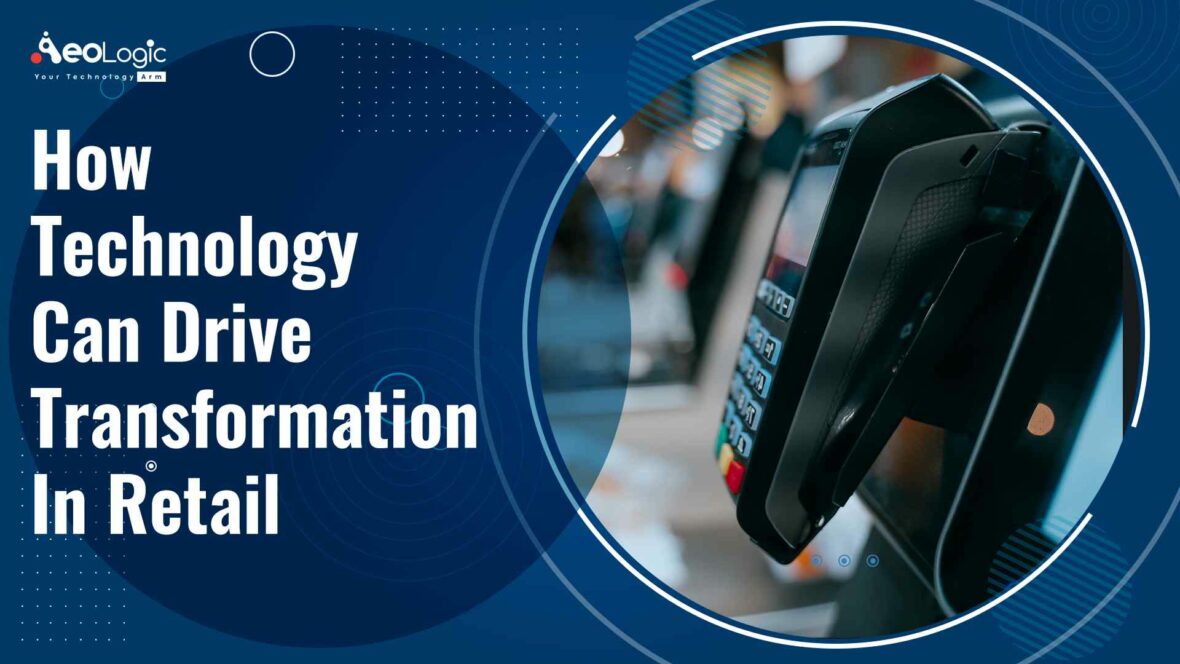You are surrounded by the technological realm in this digital era. This digital transformation has impacted the lives of millions of people and businesses. It may include modifications to infrastructure, operations, and corporate culture in order to adapt the company to the digital economy and new client demands. In this blog, we’ll look at How Technology Can Drive Retail Transformation for your business.
Quick Overview
As in the retail sector, the term “digital transformation” refers to using technology to improve the performance of a current system.
The way retailers distribute and purchase their products has been largely unchallenged throughout the years. So, as a result of enormous industry consolidation, most industries are now dominated by a small number of prominent players. However, the retail sector is beginning to transform dramatically, in terms of both product distribution and sales. With the rise of digitally born, micro-brand retail enterprises, it’s becoming evident that the traditional way of conducting business is under threat. Business owners and brands may now readily enter new markets and scale in previously impossible ways.
“Over the next few years, every industry and organization will have to transform itself.” What is coming at us is more significant than the original internet, and you must grasp it, embrace it, and find out how to revolutionize your company.”
— Tim O’Reilly, Founder & CEO of O’Reilly Media
The Future of Retail Is Now
This digitalization – specifically, its rise of digital commerce in the retail sector – is a source of innovation. When the coronavirus pandemic arrived, it affected not only how people interacted, but it also drove more retail shoppers online.
The digital transformation in the industry is not only about integrating e-commerce into your store. In reality, businesses must make significant adjustments to their operations. Supply chains, inventory management, and customer relations are a few examples of where they need to focus. They must analyze data to forecast demand correctly, respond to consumer requests, and deliver items swiftly and effectively.
Digital Transformation: What It Means For Retailers?
Technology has made improving their profit margins and speeding up new processes easier. A customer-centred approach, innovation, agility, and data intelligence benefit digital transformation. There are more and more technological updates, and retailers have to change how their businesses work to keep up with them. Retailers expect to restrategize and enhance their revenues in a variety of ways. Inventory planning, pricing structures, and consumer expectations are just a few examples.
Trends of Digital Transformation Initiatives in Retail
While digital technology is at the core of this transformation, its successful implementation requires careful planning and cross-functional collaboration. With a detailed look at the trends and consumer behavior, this change can help retailers stay focused and achieve tangible results.
Here are the top trends that retailers need to pay attention to make fundamental changes.
- Omnichannel retailing by Mobile Apps.
- Personalization and location-based marketing.
- Mobile payment applications are getting popular.
- Voice recognition and virtual reality.
- Social media and content marketing.
- Reverse showrooming.
- IoT ( Internet of Things )
Why Do Retailers Need to Embrace Digital Transformation?
Retailers must adapt and change as the customer journey evolves, and this is how it works. It’s also essential for retailers to look at more than one technology to develop new and exciting business models. Businesses are promoting growth in the area of digital integration development. Retailers are bringing in top-talent employees to increase productivity. So, we can say that retailers need digital transformation.
The Benefits of Digital Transformation in Retail
Retail digital transformation has a significant positive effect on three essential parts of the business. Let’s see what are they:
- Customer Satisfaction: Digitization enables retailers to improve their in-store and online experiences. Big data analytics, e-commerce, and mobile apps allow brands to provide personalized customer support.
- Agility in Business: Technology moves at a fast rate. So, digitization initiatives will be significant when it comes to the future.
- Retail Supply Chain: When there is a digital supply chain, suppliers can figure out how much demand there will be and how much they can make. As a result, retailers can meet their customers with on-time deliveries.
Challenges In The Future Of The Retail Industry
We’ve identified five key challenges that will significantly impact the future of the retail industry. They are
- Discontinuity in consumer behaviour and beliefs.
- Purchasers regaining control of their data.
- People and machines are becoming more diverse in their relationships.
- Human-centric ecosystems.
- Consumption is being redefined.
To Sum It Up
It can be said that just having a store won’t help you anymore. Instead of spending days researching your options, this blog will help you. Hence, let us understand your retail business needs and apply the best digital transformation strategies suited for you.
Frequently Asked Questions
What is digital retail?
Digital retailing is when you use digital technology online and offline to check out a product or service.
Why should retail companies embrace digital transformation?
Digital solutions make it easier for new manufacturing competitors to enter all kinds of businesses.






